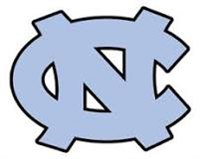What do they do?
Work with food scientists or technologists to perform standardized qualitative and quantitative tests to determine physical or chemical properties of food or beverage products. Includes technicians who assist in research and development of production technology, quality control, packaging, processing, and use of foods.
Also known as:
Central Laboratory Technician (CLT), Food Science Tech (Food Science Technician), Food Technician (Food Tech), Laboratory Assistant (Lab Assistant), Laboratory Technician (Lab Tech), QA Lab Tech (Quality Assurance Lab Technician), QC Tech (Quality Assurance Technician), QC Tech (Quality Control Technician), Quality Analyst, Quality Assurance Analyst (QA Analyst), Quality Tech (Quality Technician)
-
5.3%
Change
Ranks #12 in job growth rate30Job Openings
Ranks #27 in net job growth
Looking for colleges that offer a specific major? Use the College Match Tool to find your best-matched schools and discover your estimated Net Price!
- High school diploma equivalent (26%)
- Some college, no degree (26%)
- Bachelor's degree (22%)
- Associate's degree (16%)
- Less than high school diploma (5%)
- Master's degree (5%)
- Doctorate or Professional Degree (1%)
Most Popular Majors that prepare Food Science Technicians
-
#1
-
Degrees Granted
79,503
-
Female Students
53,804
-
Male Students
25,699
-
Median Starting Salary
$40,800
-
-
#2
-
Degrees Granted
12,596
-
Female Students
6,961
-
Male Students
5,635
-
Median Starting Salary
$45,700
-
-
#3
-
Degrees Granted
9,112
-
Female Students
5,262
-
Male Students
3,850
-
Median Starting Salary
$44,700
-
-
#4
-
Degrees Granted
2,432
-
Female Students
1,550
-
Male Students
882
-
Median Starting Salary
$44,600
-
-
#5
-
Degrees Granted
983
-
Female Students
668
-
Male Students
315
-
Median Starting Salary
$46,700
-
People in this career often have these skills:
- Reading Comprehension - Understanding written sentences and paragraphs in work-related documents.
- Active Listening - Giving full attention to what other people are saying, taking time to understand the points being made, asking questions as appropriate, and not interrupting at inappropriate times.
- Writing - Communicating effectively in writing as appropriate for the needs of the audience.
- Speaking - Talking to others to convey information effectively.
People in this career often know a lot about:
- Food Production - Knowledge of techniques and equipment for planting, growing, and harvesting food products (both plant and animal) for consumption, including storage/handling techniques.
- Production and Processing - Knowledge of raw materials, production processes, quality control, costs, and other techniques for maximizing the effective manufacture and distribution of goods.
- Chemistry - Knowledge of the chemical composition, structure, and properties of substances and of the chemical processes and transformations that they undergo. This includes uses of chemicals and their interactions, danger signs, production techniques, and disposal methods.
- English Language - Knowledge of the structure and content of the English language including the meaning and spelling of words, rules of composition, and grammar.
People in this career often have talent in:
- Near Vision - The ability to see details at close range (within a few feet of the observer).
- Oral Comprehension - The ability to listen to and understand information and ideas presented through spoken words and sentences.
- Written Comprehension - The ability to read and understand information and ideas presented in writing.
- Oral Expression - The ability to communicate information and ideas in speaking so others will understand.
- Written Expression - The ability to communicate information and ideas in writing so others will understand.
- Deductive Reasoning - The ability to apply general rules to specific problems to produce answers that make sense.
- Inductive Reasoning - The ability to combine pieces of information to form general rules or conclusions (includes finding a relationship among seemingly unrelated events).
- Problem Sensitivity - The ability to tell when something is wrong or is likely to go wrong. It does not involve solving the problem, only recognizing that there is a problem.
People in this career often do these activities:
- Evaluate quality of materials or products.
- Test quality of materials or finished products.
- Record research or operational data.
- Measure physical or chemical properties of materials or objects.
- Analyze chemical compounds or substances.
- Prepare biological samples for testing or analysis.
- Clean objects.
- Maintain laboratory or technical equipment.
- Examine characteristics or behavior of living organisms.
- Prepare compounds or solutions for products or testing.
- Train personnel in technical or scientific procedures.
- Research methods to improve food products.
- Supervise laboratory work.
- Manage scientific or technical project resources.
This page includes data from:

 Occupation statistics: USDOL U.S. Bureau of Labor Statistics Occupational Employment Statistics
Occupation statistics: USDOL U.S. Bureau of Labor Statistics Occupational Employment Statistics









